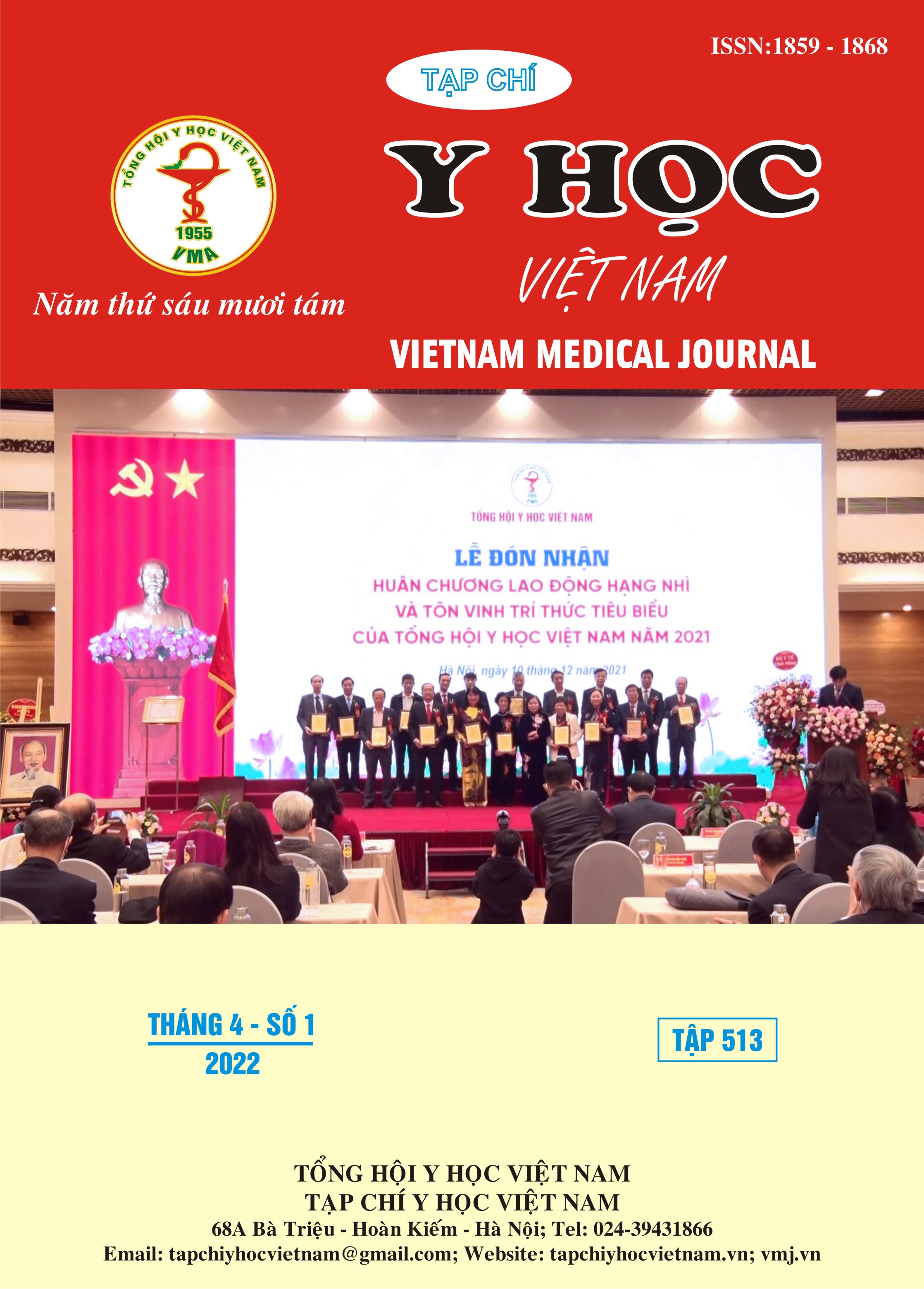DEVELOPMENT OF A PERSONALIZED LIQUID BIOPSY ASSAY TO DETECT MINIMAL RESIDUAL DISEASE IN MULTI-CANCER
Main Article Content
Abstract
Background: Minimal residual disease (MRD) refers to a small number of cancer cells that remain in the body after curative-intent treatment. It is a major cause of relapse and metastasis in cancer. Current tumor biomakers and imaging methods have limitations in the sensitivity and specificity to monitor MRD and predict treatment response. It is therefore necessary to develop a new molecular marker to use in combination with the conventional measures. Objective: Develop a personalized, tumor-informed assay to detect circulating tumor DNA (ctDNA) in liquid biopsy with high sensitivity and specificity using ultra-deep next-generation sequencing (NGS). Method: 64 patients diagnosed with stage II-III breast, colorectal, gastric cancer or resectable liver cancer, undergoing curative-intent surgery were recruited in the study. Genomic DNA was extracted from tumor tissue and sequenced to detect all tumor-derived somatic mutations in 95 targeted genes. A set of top 5 patient-specific mutations was then bioinformatically selected for multiplex PCR primer design. Plasma-derived cell-free DNA (cfDNA) samples collected before and 30-day after surgery were assayed using the 5-plex PCR, followed by ultra-deep NGS to detect the presence of ctDNA. All the mutations detected in ctDNA of cancer patients were confirmed true-positive by their absence in plasma samples of healthy controls. Results: The sensitivity to detect ctDNA in the plasma before surgery was 100% for colorectal, gastric, liver cancer and triple-negative breast cancer; 17-62% for other subtypes of breast cancer. The specificity was 100%. By tracking the positive mutations, we could stratify patients with postoperative ctDNA negative and those with postoperative ctDNA positive, the latter of which may have high risk of relapse. Conclusion: This is the first personalized, tumor-informed assay to detect ctDNA with high sensitivity and specificity for cancer patients at an affordable cost in Vietnam. The assay is currently investigated to detect relapse early and monitor other treatment response.
Article Details
Keywords
Minimal residual disease, circulating tumor DNA, somatic mutations, liquid biopsy, next-generation sequencing (NGS)
References
2. Song P, Gao J, Inagaki Y, Kokudo N, Hasegawa K, Sugawara Y, Tang W: Biomarkers: evaluation of screening for and early diagnosis of hepatocellular carcinoma in Japan and china. Liver Cancer. 2013, 2(1):31-39.
3. Yang J, Gong Y, Lam VK, Shi Y, Guan Y, Zhang Y, Ji L, Chen Y, Zhao Y, Qian F et al: Deep sequencing of circulating tumor DNA detects molecular residual disease and predicts recurrence in gastric cancer. Cell Death Dis 2020, 11(5):346.
4. Reinert T, Henriksen TV, Christensen E, Sharma S, Salari R, Sethi H, Knudsen M, Nordentoft I, Wu HT, Tin AS et al: Analysis of Plasma Cell-Free DNA by Ultradeep Sequencing in Patients With Stages I to III Colorectal Cancer. JAMA Oncol 2019, 5(8):1124-1131.
5. Magbanua MJM, Swigart LB, Wu HT, Hirst GL, Yau C, Wolf DM, Tin A, Salari R, Shchegrova S, Pawar H et al: Circulating tumor DNA in neoadjuvant-treated breast cancer reflects response and survival. Ann Oncol 2021, 32(2):229-239.
6. Christensen E, Birkenkamp-Demtröder K, Sethi H, Shchegrova S, Salari R, Nordentoft I, Wu HT, Knudsen M, Lamy P, Lindskrog SV et al: Early Detection of Metastatic Relapse and Monitoring of Therapeutic Efficacy by Ultra-Deep Sequencing of Plasma Cell-Free DNA in Patients With Urothelial Bladder Carcinoma. J Clin Oncol 2019, 37(18):1547-1557.
7. Coombes RC, Page K, Salari R, Hastings RK, Armstrong A, Ahmed S, Ali S, Cleator S, Kenny L, Stebbing J et al: Personalized Detection of Circulating Tumor DNA Antedates Breast Cancer Metastatic Recurrence. Clin Cancer Res 2019, 25(14):4255-4263.
8. Labgaa I, Villacorta-Martin C, D'Avola D, Craig AJ, von Felden J, Martins-Filho SN, Sia D, Stueck A, Ward SC, Fiel MI et al: A pilot study of ultra-deep targeted sequencing of plasma DNA identifies driver mutations in hepatocellular carcinoma. Oncogene 2018, 37(27):3740-3752.


